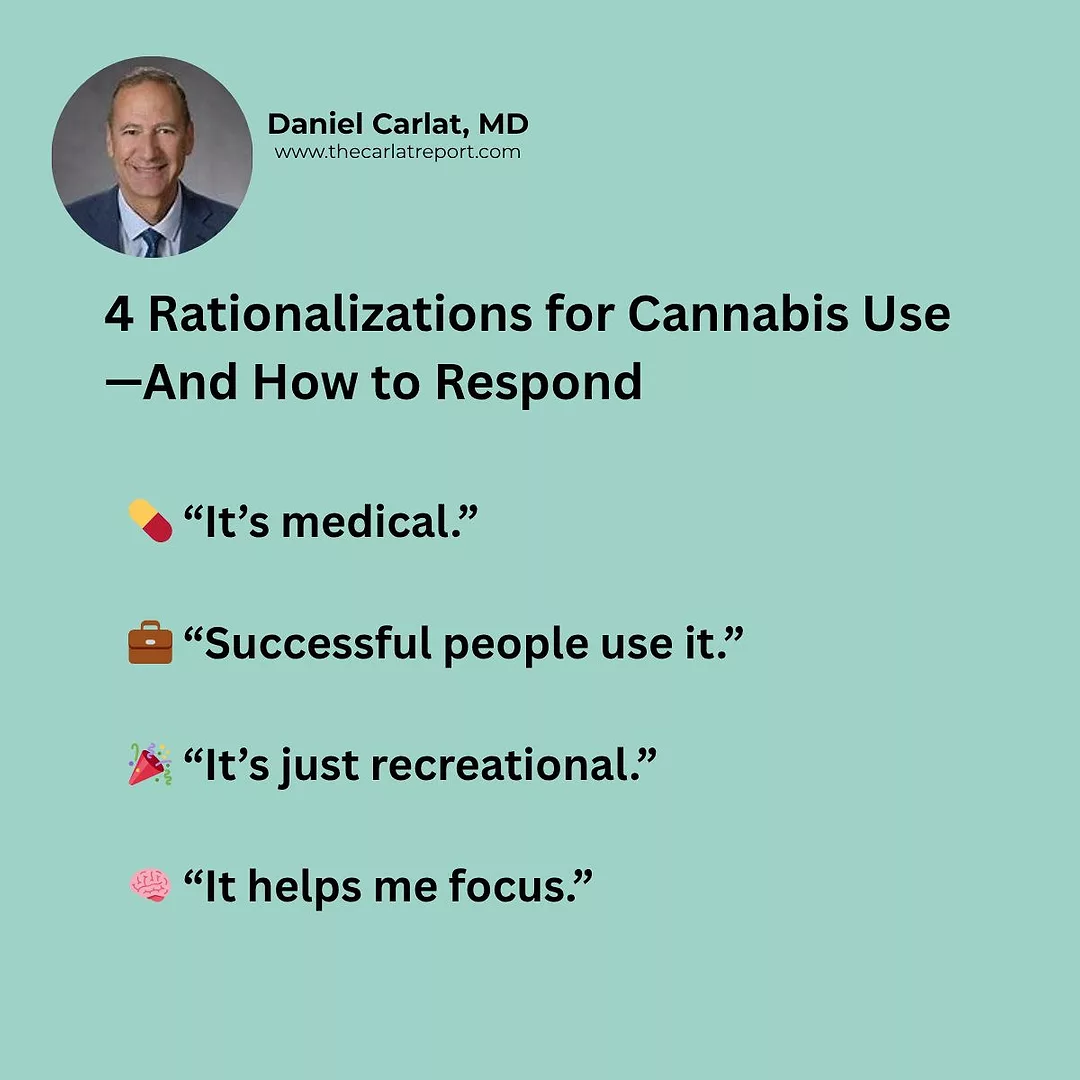4 Rationalizations for Cannabis Use—And How to Respond

“I use marijuana for medical reasons.”
And other rationalizations we hear every day.
In The Carlat Guide to Addiction Treatment, Michael Weaver, MD, offers a smart and usable framework for these conversations—grounded in motivational interviewing, not confrontation.
Here are 4 common rationalizations patients offer—and how we might respond:
1. “I use it for medical reasons.”
How to respond:
You're not wrong—THC can help in specific cases. But the science is narrow:
- FDA approval = chemo nausea and AIDS-related weight loss
- Most dispensary products? Unregulated, unpredictable potency
- And for psychiatric conditions: the evidence just isn’t there
2. “Lots of successful people use marijuana.”
How to respond:
Absolutely—presidents, CEOs, actors. But here’s the reality:
- Fame ≠ protection. Celebrities have cash, lawyers, and PR teams
- Most patients don’t. When consequences hit, they hit harder
- Try: “Let’s bring it back to your life. What have you gained—and what have you lost—from your use?”
3. “I’m not addicted—it’s recreational.”
How to respond:
Great—so let’s explore that:
- “What’s good about cannabis for you?”
- “What’s not so good?”
- Then: “Where do you see yourself in 5 years? Still using?”
This isn’t persuasion—it’s evoking insight. That’s where change starts.
4. “It helps me think better.”
How to respond:
I get that—and for many, cannabis feels clarifying. But here’s the rub:
- Often it’s not boosting function—it’s numbing stress, anxiety, or boredom
- Try: “What’s cannabis helping you avoid?”
That shift reframes it from enhancement to coping—and opens up the real conversation.
Discussion Prompt
- What rationalizations do you hear most in your practice—and what’s helped you respond effectively?
- Join the conversation on the LinkedIn Post.
- Share this with clinicians who want real-world tools for addiction care.
- Follow me (Daniel Carlat, MD on LinkedIn) for practical, clinician-led updates in psychiatry and addiction treatment.
Related Materials
-
Navigating Cannabis Withdrawal
Expert Q&A with Alan J. Budney, PhD -
Are Higher-Potency Cannabis Products Riskier for Mental Illness?
Research Update by Deepti Anbarasan, MD and John Wang, MD -
Currently Available Cannabis Products
Clinical Update by Alex K. Rahimi, MD
Newsletters
Please see our Terms and Conditions, Privacy Policy, Subscription Agreement, Use of Cookies, and Hardware/Software Requirements to view our website.
© 2026 Carlat Publishing, LLC and Affiliates, All Rights Reserved.

_-The-Breakthrough-Antipsychotic-That-Could-Change-Everything.webp?t=1729528747)



